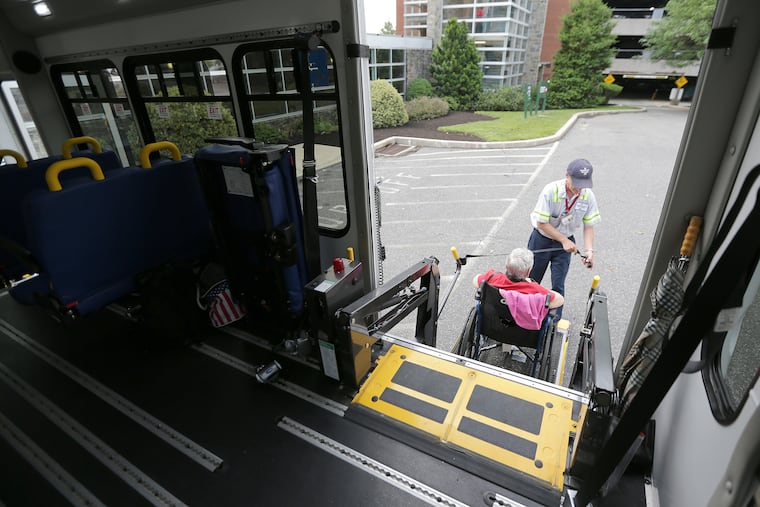Overhaul of Pa.'s medical transport program on hold after counties raise concerns
Due to pressure from county and transit officials, Pennsylvania is delaying changes to its Medical Assistance Transportation Program while it studies possible consequences.

The overhaul of the state’s county-based Medical Assistance Transportation Program — Pennsylvania’s answer to the federal mandate to provide free nonemergency medical transportation for Medicaid patients — is on hold.
By the end of the summer, the Pennsylvania Department of Human Services had planned to award contracts to several private companies to take over and regionalize the 35-year-old program, which is offered to the state’s 2.8 million Medicaid patients and used by 55,000 of them.
But state lawmakers have told the Human Services, Transportation, and Aging Departments to study the possible effects on riders and taxpayers of changing a system that proponents call a national model for efficiency.
County officials and transit companies object to the changes, and they and a bipartisan group of lawmakers had called for the state to delay them until state agencies analyzed potential consequences.
The agencies are working on it. Under a bill Gov. Tom Wolf signed on June 28, they have until late September to finish a preliminary report and until the end of the year to produce a full analysis.
Changing how the state administers the program would make Pennsylvania eligible for millions of dollars in federal funds, but counties say costs would simply shift, ultimately costing the state more.
Pennsylvania has one of the country’s lowest costs for nonemergency medical transportation, according to a national study.
A representative from the County Commissioners Association of Pennsylvania is on the work group the state created to study the issue and to make recommendations, said Kathi Cozzone, the association’s president and a Chester County commissioner. She said members are pleased to have a seat at the table.
County officials said they were blindsided by the decision last year to change to a regional broker model from the current system, which allows counties to decide how to run the program. Most counties, including those surrounding Philadelphia, use program funds to pay transit agencies to transport residents.
In the state’s interconnected shared-ride system, several different programs pay local transit companies to carry several types of riders, which spreads out the costs of transporting Medicaid, elderly, and other categories of patients. The system eliminates duplicated service.
Under the new system, the state would pay a set fee per eligible rider to companies that would run three new regional programs regardless of how many rides the companies provide. Now, the state reimburses transit companies based on trips provided.
Cozzone said that whatever the ongoing study recommends, “hopefully it’ll be something that will not have a negative impact on our local constituents.”
“Our goal as county commissioners,” she said, “is to continue to provide quality services to our residents at a reasonable cost.”